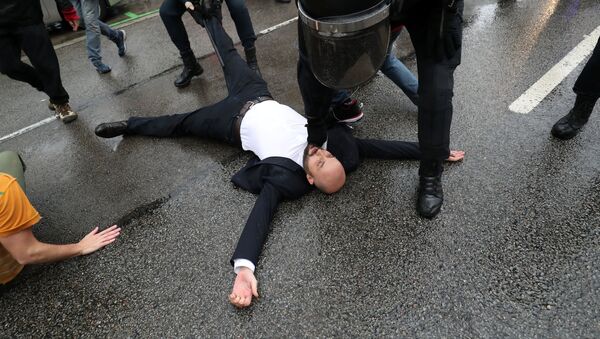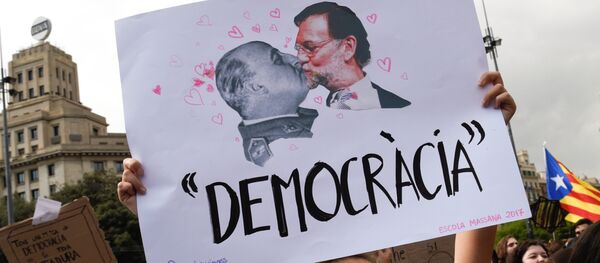"The actions of security forces made it possible to call the policy of the Spanish government really catastrophic. They created an international image of a repressive country where the National Police and the Civil Guard are trying to force people not to vote," Zelaia said.
He was echoed by journalist Alvaro Hilario, who told Sputnik Mundo that "Madrid wants to pretend that nothing has happened here [in Catalonia]."
"Madrid's government and the [Spanish] People's Party deny that about 800 people were injured, but we all witnessed police violence," Hilario said.
According to him, the result of the independence referendum is a triumph for the Catalans and progressive sectors all across Spain. In addition, this is a triumph in terms of the position of civil disobedience.
"The community demonstrated its organization, independence and ability to peacefully resist all the provocations," Hilario said.
Zelaia, for his part, pointed out that "Spain and Catalonia are now facing a key moment in their history."
"It seems obvious that all these contradictions led to the authorities losing important ties with international partners. This is a step forward for Catalonia, and a step back for the Spanish government," he said.
Zelaia added that the latest events in Catalonia generate "very strong emotions in the Basque Country as violence prompts a political consciousness among other ethnic entities within Spain."
He said that "the politicians of this region are waiting for the further development of events to understand what to do next."
The Spanish government is "now more fierce than ever", Zelaia added, calling the current situation in Spain "historic tension."
"Catalonia is one of the richest regions in Spain; it is about 20 percent of the Spanish population and the GDP. If it becomes independent, it will have a tremendous psychological effect," he said, warning of "the looming radicalization of conservative elements."
He also warned of "the polarization of [the country's] entire political spectrum, which will be aggravated by the situation in Catalonia."
Hilario, in turn, said it is "paradoxical" that Madrid speaks out against Catalan nationalism, not taking into account that Spanish nationalism is "much more aggressive."
"This is more than just a line between Spanish and Catalan nationalists. This is a line between what a social and legal state should be and how the boundaries of democracy should be defined," he concluded.
Madrid declined to recognize the legitimacy of the vote, sending the country's National Police and Civil Guard to Catalonia to shut down polling stations, which led to clashes with voters. The Catalan Health Department said that almost 1,000 people sought medical help.





